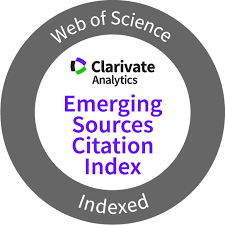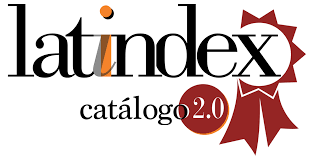Los think tanks y su presencia en la agenda mediática española/ Think tanks and their presence in the Spanish media agenda
DOI:
https://doi.org/10.5783/revrrpp.v9i17.584Palabras clave:
Relaciones Públicas, Think tanks, ComunicaciónResumen
Resumen
El estudio que se expone a continuación intenta abordar el papel que tienen los think tanksen la prensa española. Los laboratorios de ideas centran su actividad en crear y reformular ideas con el objetivo de difundirlas a la opinión pública y que esta las acoja y las tomen como propias, la mayor parte de estas enfocadas al ámbito político. Por tanto, los medios de comunicación tienen un papel fundamental en el desarrollo de estas organizaciones. Para la consecución de los objetivos de este estudio se ha realizado una revisión bibliográfica a fondo del tema expuesto y, además, se desarrolla una metodología cuantitativa a través de un análisis de contenido de los cuatro periódicos con mayor promedio de difusión según la Oficina de Justificación de la Difusión (OJD). Gracias a la aplicación de esta metodología se han obtenido resultados y conclusiones sobre la relación entre los laboratorios de ideas y los medios de comunicación en España. Todo esto, junto al planteamiento de la pregunta de investigación: ‘Los think tanksespañoles difunden su actividad y sus ideas a través de medios de comunicación afines a su ideología política, situándose en la misma posición del espectro político’. La presencia, las estrategias y las técnicas que estas organizaciones utilizan para la difusión de su actividad son algunas de las secciones que este estudio expone. Asimismo, se obtienen conclusiones acerca de nuevos think tanksespañoles que han irrumpido en la presa, como Politikón y sus relaciones con el periódico El País, abriendo futuras líneas de investigación.
Palabras clave:Think tanks, laboratorios de ideas, medios de comunicación, prensa española, relaciones públicas.
Abstract
The following study attempts to address the role of think tanks in the Spanish press. These institutions focus their activity on creating and reformulating ideas with the aim of disseminating them to the public opinion and that the latter welcomes them and takes them as its own, most of these are focused on the political themes. In addition, the information provided by think tanks that have greater participation and, therefore, appearances in the media, are characterized by achieving greater legitimacy. Therefore, the media have a fundamental role in the development of these organizations. In order to achieve the objectives of this study, an in-depth bibliographic review of the subject has been carried out, dealing with different areas that are found around these think tanks: definition, typologies, functions, objectives and the importance of communication for these institutions. It has also focused later on contextualising and characterising how these institutions are and how they carry out their activity in Spain, as the study seeks to focus on the Spanish reality. In the same way, in order to obtain a more faithful image of the state of think tanks in the Spanish territory, a quantitative methodology has been developed through an analysis of the content of the four newspapers with the highest average circulation according to the Oficina de Justificación de la Difusión(OJD): El País, La Vanguardia, El Mundoand ABC, by means of a systematic random k-ima sampling consisting of periods of seven days. Thanks to the application of this methodology, results and conclusions have been obtained regarding the relationship between think tanks and the media in Spain. All this, together with the research question: Do Spanish think tanks disseminate their activity and ideas through media related to their political ideology, placing themselves in the same position of the political spectrum?, which has allowed to develop results and conclusions about the possible ideological affinity between media and laboratories of Spanish ideas. The presence, the strategies and the communication techniques that these organisations use to disseminate their activity become an axis of great importance and, therefore, of relevance to the field of communication. It should also be mentioned that this study has been able to draw conclusions about new Spanish think tanks that have broken into the Spanish dam, such as Politikón and its relations with the newspaper El Paísor the characteristic case found between the newspaper ABCand the think tanks Instituto de Estudios Regionales y Metropolitanos de Barcelona, since the newspaper accuses of having privileges thanks to the affinity of the institution with the mayoress of Barcelona. Thanks to the discussion and conclusions of this study, future lines of research are opened up, as the phenomenon of idea laboratories continues to develop in Spain.
Keywords:Think tanks, ideas laboratories, media, Spanish press, Public Relations.
Descargas
Citas
ALMIRON, N. (2006). Pluralismo en Internet: el caso de los diarios digitales españoles de información general sin referente impreso. Ámbitos, (15), 10-30.
ÁVILA, R. (2013). Think Tanks: ¿Nueva herramienta de participación ciudadana? Descubriendo su implantación en España. Más poder local, (19), 28-30.
BARBERÁ, P. Y AGUERRI, J. (2011). Naturaleza e influencia de los think tanks en el proceso político en España. Barcelona: Institut de Ciències Polítiques i Socials, 292, 1-24.
BC3 (2018). About us. Dirección web https://www.bc3research.org/about_us.html
CASTILLO-ESPARCIA, A. (2009). Relaciones públicas y think tanks en América Latina. Estudio sobre su implantación y acción. Razón y Palabra 70, 2-23.
CASTILLO-ESPARCIA, A. (2010). La comunicación de los lobbies en Internet: el ciberactivismo de los Think Tanks. Icono14, 8(1), 191-206.
CASTILLO-ESPARCIA, A. (2011). Medios de comunicación y Think Tanks. In SUÁREZ VILLEGAS, J.C. (ed). La ética de la comunicación a comienzo del siglo XXI: I Congreso Internacional de Ética de la Comunicación, libro de actas. Sevilla, 561-570.
CASTILLO-ESPARCIA, A. Y SMOLAK-LOZANO, E. (2017). Relaciones públicas digitales. Análisis de las estrategias de comunicación de los think tanks. Obra digital: revista de comunicación, (13), 59-80.
CASTILLO-ESPARCIA, A. Y SMOLAK-LOZANO, E. (2016). La comunicación de los think tanks. Análisis de la estrategia digital. Opción, 32(9), 328-341.
CASTILLO-ESPARCIA, A., GUERRA-HEREDIA, S., y ALMANSA-MARTÍNEZ, A. (2017). Political communication and think tanks in Spain. Strategies with the media. El profesional de la información, 26(4), 1699-2407.
CASTILLO, S. (2016). Estudio empírico-conceptual de la crisis económica y cultural en la prensa española. Observatorio (OBS*), 10(3), 41-55.
CIDOB. (2018). Barcelona Centre for International Affairs. Dirección web https://www.cidob.org/cidob/presentacion
CÓRDOBA-HERNÁNDEZ, A. M. (2009). La línea editorial de ABC, El País, El Mundo y La Vanguardia frente al conflicto palestino-israelí: 1993-2004 (Tesis doctoral). Pamplona: Universidad de Navarra.
EUROMESCO – EURO-MEDITERRANEAN RESEARCH (2018). About Us. Dirección web https://www.euromesco.net/about-us/
FAES (2018). ¿Qué es Faes?. https://fundacionfaes.org/es/presentacion (19 Marz. 2019).
FEDEA (2018). Lo que hace Fedea. Dirección web http://www.fedea.net/lo-que-hace-fedea/
FREIDENBERG, F. (2004). Los medios de comunicación de masas: ¿también son actores. Selected Works. https://works.bepress.com/flavia_freidenberg/72/ (14 de dic. 2018).
FUNDACIÓN CAROLINA (2018). Historia. Dirección web https://www.fundacioncarolina.es/la-fundacion/historia/ (19 Marz. 2019)
FUNDACIÓN INNOVACIÓN BANKINTER (2018). About Us. Dirección web https://www.fundacionbankinter.org/sobre-nosotros
GARCÍA, A. P. (2011). La percepción del movimiento "15-M" en las ediciones digitales de El Mundo y El País. Tejuelo: Didáctica de la Lengua y la Literatura. Educación, (12), 196-217.
GUERRA, S. (2014). La comunicación de los think tanks en España. Panorama y estrategias comunicativas. Tesis Doctoral. Málaga: Universidad de Málaga (RIUMA).
IEMED (2018). Vision and Mission. Dirección web http://www.iemed.org/iemed/presentacio-en/liemed
IERMB (2018). Instituto de Estudios Regionales y Metropolitanos de Barcelona. Dirección web http://www.uab.cat/web/entitades-agregadas/institutos-y-centros-de-investigacion/instituto-centro-de-investigacion/instituto-de-estudios-regionals-y-metropolitanos-de-barcelona-iermb-- 1345467957854.html?param1=1345659469610
IJM (2018). Instituto Juan de Mairena. Dirección web https://www.juandemariana.org/el-ijm
IJM (2019). El IJM. Disponible en: https://www.juandemariana.org/el-ijm (19 Mar. 2019)
INSTITUCIÓN FUTURO (2018). ¿Qué es Institución Futuro? Dirección web http://www.ifuturo.org/qui%C3%A9nes-somos/qu%C3%A9-es-instituci%C3%B3n- (19 Marz. 2019)
ISGLOBAL (2018). Sobre ISGlobal. Dirección web https://www.isglobal.org/about-us
JUNQUERA, N. (2003). La fundación de Aznar se desvincula del PP. El País (10 Oct. 2003). Disponible en: https://elpais.com/politica/2016/10/03/actualidad/1475512732_487125.html (19 Mar. 2019).
KRIPPENDORFF, K. (1990). Metodología de análisis de contenido. Teoría y práctica. México: Paidós.
LALUEZA, F. Y GIRONA, R. (2016). The impact of think tanks on mass media discourse regarding the economic crisis in Spain. Public Relations Review, 42(2), 271-278.
MARTÍNEZ-OÑA LÓPEZ, M. (2016). La comunicación de los think tanks económicos en España. Tesis Doctoral. Málaga: Universidad de Málaga.
MCGANN, J. (2018). Think Tank Index. Retrieved from https://www.gotothinktank.com/global-goto-think-tank-index/ (27 Feb. 2018).
MEDVETZ, T. (2008). Think tanks as an emergent field. New York: Social Science Research Council.
MUÑOZ, O. S. (2017). El fin (momentáneo) del bipartidismo en españa: análisis de los resultados electorales/The (Momentary) End of Two-Party System in Spain: Analysis of the Electoral Results of 2015 and 2016. Revista Española de Derecho Constitucional, (109), 237-260.
ONOFRIO, M. y RABADÁN, D. (2005). Poder e ideas: el papel de los Think Tanks en el diseño y ejecución de la política exterior estadounidense. Revista electrónica de estudios internacionales (REEI), (10), 7.
PARRILLA, R., ALMIRON, N., y XIFRA, J. (2016). Crisis and interest: The political economy of think tanks during the great recession. American Behavioral Scientist, 60(3), pp. 340-359.
PODER LIMITADO (2018). Nosotros. Dirección web https://poderlimitado.wordpress.com/centro-estudios- poder-limitado-coruna-galicia/ (19 Marz. 2019).
POLITIKON (2018). Sobre nosotros. Dirección web https://politikon.es/acerca-de/
PONSA, F., y GONZÁLEZ-CAPITEL, J. (2015). Radiografía de los think tanks en España. Madrid: Funciva.
REAL INSTITUTO ELCANO (2018). Presentación. Dirección web http://www.realinstitutoelcano.org/wps/portal/rielcano_es/sobre-elcano/presentacion (19 Marz. 2019).
SANTILLÁN, J. (2012). Think Tanks y sus estrategias comunicativas. Redmarka: revista académica de marketing aplicado, (8), 201-222.
STONE, D. (2001). Think tanks, global lesson-drawing and networking social policy ideas. GLOBAL SOCIAL POLICY, 1(3), 338-360.
THINK TANK CIVISMO (2018). ¿Quiénes somos? Dirección web https://www.civismo.org/es/el-think-tank/quienes-somos (19 Marz. 2019).
URRUTIA, O. (2013). El papel de los Think Tanks en la definición y aplicación de las políticas y estrategias de defensa. Revista del Instituto Español de Estudios Estratégicos, (2), 7.
VARGAS, C. (2012). Los think tanks: laboratorios para fortalecer la calidad de la administración pública. En XVII Congreso Internacional del CLAD sobre la Reforma del Estado y de la Administración Pública. Cartagena, Colombia.
WEAVER, R. K. (1989). The changing world of think tanks. PS: Political Science & Politics, 22(3), 563-578.
XIFRA, J. and PONSA, F. (2009). El marketing de las ideas. Los 'think tanks' en España y en el mundo. 1st ed. Barcelona: Editorial UOC.
Descargas
Publicado
Cómo citar
Número
Sección
Licencia
Los autores que publican en esta revista están de acuerdo con los siguientes términos:- Los autores conservan los derechos de autor y garantizan a la revista el derecho de ser la primera publicación del trabajo al igual que licenciado bajo una Creative Commons Attribution License que permite a otros compartir el trabajo con un reconocimiento de la autoría del trabajo y la publicación inicial en esta revista.
- Los autores pueden establecer por separado acuerdos adicionales para la distribución no exclusiva de la versión de la obra publicada en la revista (por ejemplo, situarlo en un repositorio institucional o publicarlo en un libro), con un reconocimiento de su publicación inicial en esta revista.
- Se permite y se anima a los autores a difundir sus trabajos electrónicamente (por ejemplo, en repositorios institucionales o en su propio sitio web) antes y durante el proceso de envío, ya que puede dar lugar a intercambios productivos, así como a una citación más temprana y mayor de los trabajos publicados (Véase The Effect of Open Access) (en inglés).




